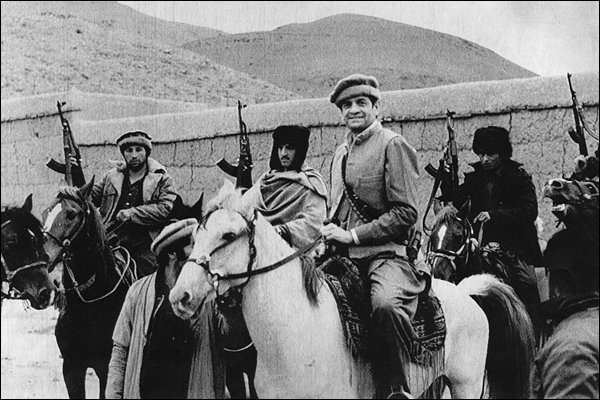Das waren noch Zeiten: Congressman Charlie Wilson in AFG
In übereinstimmenden Nachrichten der New York Times und der BBC ist die Rede davon, dass Mullah Baradar, der militärische Chef der Taliban, bereits vor einer Woche von amerikanischen Truppen und von mit ihnen kooperierenden Pakistanern (!) gefasst worden sein soll.
Die Times schreibt:
Details of the raid remain murky, but officials said that it had been carried out by Pakistan’s military spy agency, the Directorate for Inter-Services Intelligence, or ISI, and that C.I.A. operatives had accompanied the Pakistanis.
In anderen Worten: Das ISI und die CIA versuchen den Geist wieder in die Flasche zu stopfen, den sie einst herausgelassen hatten. Sehr gute Nachrichten, vor allem wegen des pakistanischen Umdenkens, das sich hier zeigt. Anders gesagt: „Charlie Wilson’s War“ wird zuende geführt.
Baradar ist die Nummer 2 hinter dem Talibachef Mullah Omar, und seine Bedeutung für die militärische Strategie der Taliban im afghanischen Süden wird sogar noch höher eingeschätzt als die des Anführers.
Sollte sich diese Nachricht bestätigen, wäre dies ein Grund zur Hoffnung. Und es würde auch erklären, warum die Großoffensive in Helmand just in diesen Tagen stattfindet.
Ein ausführliches Porträt findet sich hier.
Paragh Kanna warnt aber davor, in den möglichen (noch unbestätigten) militärischen Erfolgen bereits die Wende sehen zu wollen, die einen politischen Prozess (und das heisst: Verhandlungen mit den Clanführern) überfüssig machen würde:
The olden system of influential tribal elders, though battered in the Pashtun areas, has withstood the Taliban’s violent campaign to destroy and replace it with militant Islamic rule. No matter how tumultuous and intermittently brutal the situation, kinship networks and their leaders retain persuasive influence.
Regrettably, most officials and analysts fail to grasp that the Pashtun region is a potentially fruitful theater for dialogue and engagement. Its tribes have not only been fierce fighters for centuries, but also expert negotiators; they violently punish those who break promises, but honor agreements and loyalty as well. If the Obama strategy emphasizes “people-to-people ties,” these are the people who are crucial to enlist in both the short and long term. The tribal order can’t be defeated by fighting against it, but it can be gradually and incrementally modernized through thoughtful engagement. Many tribal leaders have appealed responsibly for just such an approach, including influential opinion-shapers in isolated North Waziristan. To turn away from this opportunity would be tragic.
